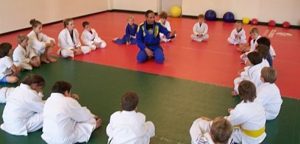By Samantha Smith
For many Americans, the concept of drug doping is synonymous with high-profile athletics.
But just like performance-enhancing drugs help athletes, college students may abuse prescription stimulant medications meant for people with Attention Deficit Hyperactivity Disorder (ADHD) to help them academically.
According to a 2008 study published in the Journal of American College Health, roughly 34 percent of 1,811 undergraduates at a large public research university reported illegal use of ADHD stimulants. The study was conducted during the spring and summer 2006.
According to the results of the study, most illegal users reported using ADHD stimulants during high academic stress, with users finding the drugs help reduce fatigue, increase reading comprehension, cognition and memory.
Dr. Emilio Carranco, director of the Student Health Center at Texas State University said the school is “aware that it’s (academic doping) an issue.”
Carranco said that even though the trend of academic doping is seen at colleges across the country, faculty and staff at Texas State have an avenue to report any students’ suspicious behavior. The PAWS Alert System allows faculty or staff to report a student who may have been displaying a marked difference in behavior, he said.
In extreme circumstances the Behavior Assessment Team would review a case to determine what action needs to be taken on the part of the University, Carranco said.
He added the Texas State Student Health Center has the ability to manage students’ ADHD treatment plans.
One Texas State student, who is currently enrolled in a Masters program at the school and wished to remain anonymous, said she believes college students abuse stimulant medications due to time management issues.
She believes that the stimulant medications make a person focus more and that it’s easier than planning out the work.
The student said that she noticed the practice of academic doping occurring more with freshman and seniors.
Those who abuse stimulant drugs may receive medication without a prescription from acquaintances who sell their medication, she said.
The student, however, denied she used illicit drugs to help academically.
“In my undergrad courses, I would focus my time on the subjects I was lacking in and just applied myself the old-fashioned way. I found that by doing it this way, the subjects I was studying stayed with me longer,” the student said.
The issue of academic doping, however, has not trickled down to the high school level.
Tim Savoy, Hays CISD public information officer, said there have been no reports of academic doping at any Hays CISD campus.
Dale Whitaker, director of communications for Dripping Springs ISD, said they also have never reports of academic doping.





